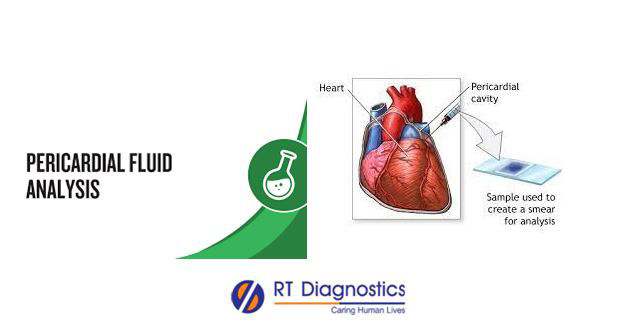Chloride pericardial fluid Test
Why Chloride pericardial fluid Test?
CLINICAL INFORMATION
Chloride is one of the most important electrolytes (other than sodium, potassium, bicarbonates) in the human system that helps to maintain electrical neutrality at the cellular level (by moving into or out of the cells as needed). Electrolytes are electrically charged minerals that regulate the fluid volume and electrolyte balance (of acid-bases – pH balance) in the body and monitor treatment (prognosis – effectiveness of treatment). It helps to maintain fluid homeostasis inside and outside the cells and thus regulates blood volume, blood pressure, and pH of body fluids. Symptoms that may indicate electrolyte (chloride) imbalance include excessive fatigue, muscle weakness, breathing difficulties, frequent vomiting, prolonged diarrhea, excessive thirst, and high blood pressure. Chloride Test helps measure the level of chloride in blood or urine, hence is ordered as a part of electrolyte panel or basic metabolic panel or during routine health check-up and also in some pathological conditions (abnormal levels of chloride). The main source of chloride for the body is food intake (consumption of food) and table salt. Most chloride is absorbed by the digestive tract and excess is eliminated in urine. Symptoms of low chloride (hyperchloremia) include fluid loss, dehydration, weakness or fatigue, difficulty in breathing (respiratory distress such as hyperventilation caused by respiratory alkalosis) diarrhea, and/or vomiting. Excessive secretion of certain hormones such as cortisol and aldosterone can also contribute to body fluid loss (leading to chloride depletion). Other causes of chloride imbalance include congestive heart failure, diabetic ketoacidosis, aldosterone deficiency, prolonged vomiting or gastric suction, Addison disease, emphysema, malabsorption syndrome, primary aldosteronism, chronic lung diseases can lead to respiratory acidosis and/or loss of acid from the body (Metabolic acidosis), etc. Symptoms of high chlorine (hyperchloremia) include kidney failure or kidney disorders, High levels of blood sodium, Cushing syndrome, diabetes insipidus and/or diabetic coma, loss of body fluids from prolonged vomiting, sweating or high fever (dehydration), drugs like NSAIDs, Hormones (androgen, corticosteroids, estrogens) and certain diuretics, etc. Chlorine test in order as a part of electrolyte panel (sodium, potassium, chlorine, bicarbonates) in certain conditions such as kidney diseases, heart failure, liver diseases, and high blood pressure, etc that leads to an imbalance of fluids in the body. Other tests such as blood gases may also be ordered to further evaluate the severity and cause of extreme imbalance (acidosis or alkalosis). PERICARDIAL fluid analysis is used to help diagnose the cause leading to fluid accumulation in the pericardial fluid, to differentiate either exudate or transudate i.e. if the cause is due to inflammation of the pericardium (pericarditis), or fluid accumulation around the heart (pericardial effusion). If the cause of fluid accumulation around the heart is due to an imbalance of pressure within blood vessels or due to the inflammation of the pericardium. Hence this differential diagnosis would enable to confirm of the cause for effective treatment. Chloride pericardial fluid test helps in the analysis of any pathology (eg. To know the nature of pathology -Transudate / Exudate) in the specimen, checks for changes in the physical properties like color, viscosity, and screens for changes in the fluid’s biochemical composition, etc, to monitor Acid-Base Balance and during prognosis.

General Instructions:
Sample Requirement: Specimen - Pericardial fluid. Test Preparation: None.
NOTE - Sample for specimen collections may vary based on the patient’s condition/cases according to the patient’s presenting complaints/signs or symptoms:
SPECIMEN REQUIREMENT (Special or Rare Cases) - As instructed and guided by Physician / Clinician / Pathologist / as per Laboratory’s requirements, according to procedures and protocols.
Sample Requirement: Pericardial fluid
Test Preparation: None
This Multi-Specialty Clinical Referral Laboratory RT DIAGNOSTICS provides precise and accurate tests with an extensive range of testing services to the medical centers to help in the diagnosis and identification of pathology in the test specimens for infectious diseases and also to evaluate the function of organ systems of the patient. It prevents further complications and helps to stabilize and restore health to near normalcy at the earliest without delay.



